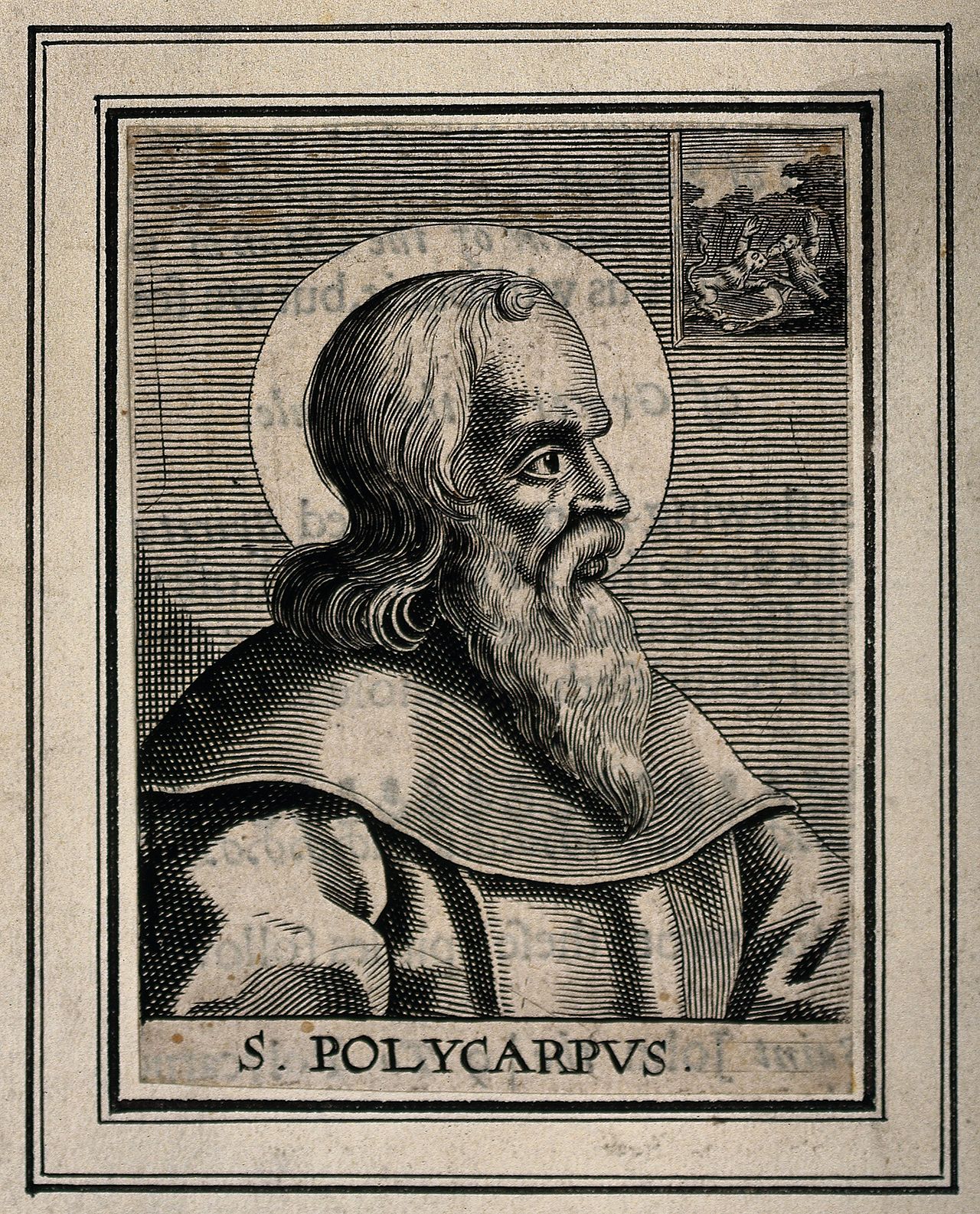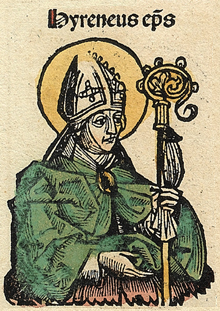
Catholic Saints
Saint Polycarp, a second-century bishop and martyr, was born around 69 AD in Smyrna (modern-day Izmir, Turkey). A disciple of the Apostle John, he served as Bishop of Smyrna for decades, linking the apostolic era to the early Church. Renowned for his steadfast faith, Polycarp faced martyrdom around 155 AD at age 86, refusing to renounce Christ despite threats of fire and beasts. His only surviving work, the Epistle to the Philippians, reflects his pastoral care and reliance on Scripture. Known for his bold stand against heresy—once calling the heretic Marcion “the firstborn of Satan”—Polycarp’s death inspired Christians worldwide, cementing his legacy as an Apostolic Father.
His martyrdom on February 23 is celebrated as his feast day.
Apostolic Father
Born around 69 AD in Smyrna, Saint Polycarp emerged as a vital figure in early Christianity, directly connecting the apostles to the Church’s second century.
Polycarp grew up in Smyrna, a bustling Roman port city in Asia Minor. As a young man, he became a disciple of the Apostle John, who tradition holds ordained him Bishop of Smyrna. This direct link to Christ’s inner circle shaped his unwavering commitment to apostolic teaching.
Raised in a Christian household or converted early, Polycarp served Christ for 86 years, as he declared at his martyrdom. His early life forged a foundation of faith that would withstand persecution and heresy.
Under John’s mentorship, Polycarp absorbed firsthand accounts of Jesus’ life and teachings, ensuring their faithful transmission to future generations.
As Bishop of Smyrna, Polycarp shepherded his community through decades of growth and challenge, becoming a pillar of stability in a turbulent era. His leadership drew the attention of contemporaries like Ignatius of Antioch, who wrote to him en route to martyrdom around 107 AD, urging Polycarp to care for the Church. Polycarp’s Epistle to the Philippians reflects his pastoral heart, rich with Scriptural citations.
He also traveled to Rome around 154 AD to discuss Easter’s date with Pope Anicetus, showing his influence beyond Smyrna, though they agreed to differ on practice.
Polycarp’s long tenure as bishop—possibly 70 years—solidified his reputation as a steadfast leader rooted in apostolic tradition.
Polycarp fiercely opposed heresy, most famously confronting Marcion and denouncing him as “the firstborn of Satan” for his dualistic teachings.
Marcion’s rejection of the Old Testament and material creation clashed with Polycarp’s orthodox faith in one God and Christ’s Incarnation. His Epistle warns against false teachers, urging fidelity to the Gospel.
His stance reinforced the Church’s unity and reliance on apostolic authority, a bulwark against Gnostic and other distortions.
Polycarp’s bold resistance to heresy preserved the integrity of Christian doctrine in its formative years.
Polycarp’s martyrdom around 155 AD in Smyrna’s stadium became a defining moment, showcasing his unyielding faith at age 86. Arrested during a wave of persecution, he refused to curse Christ, declaring, “Eighty-six years have I served Him, and He never did me any wrong.” When fire failed to consume him, he was stabbed, his death a radiant witness to believers.
The Martyrdom of Polycarp, an early account, records his courage, inspiring Christians to face persecution with resolve.
His martyrdom sealed his legacy as a model of faithfulness, echoing Christ’s sacrifice.
Revered as a saint and Apostolic Father, Polycarp’s influence endures in the Church, celebrated on February 23. His life bridged the apostles and later generations, with disciples like Irenaeus carrying forward his teachings. His feast day recalls his heroic stand and pastoral care. Today, Polycarp inspires Christians to hold fast to faith amid trials, a timeless example of devotion.
Polycarp’s steadfastness and love for Christ continue to resonate across centuries.
“Eighty and six years have I served Him, and He never did me any injury: how then can I blaspheme my King and my Savior?”
Born in Smyrna (modern-day Izmir, Turkey).
Polycarp was born into a Christian family or converted young, later becoming a disciple of the Apostle John.
Ordained by John, Polycarp led the Church in Smyrna for decades, guiding it through growth and persecution.
Became Bishop of Smyrna.
Wrote Epistle to the Philippians.
Polycarp penned his only surviving letter, urging the Philippians to faithfulness and quoting Scripture extensively.
Polycarp met Pope Anicetus to discuss Easter’s date, reflecting his broader Church influence.
Traveled to Rome.
Martyred in Smyrna.
Polycarp’s martyrdom at 86 solidified his status as an Apostolic Father and enduring saint.

“I bless you, Father, for having made me worthy of this day and this hour, that I might take a portion of the martyrs in the cup of Christ… Among these may I today be welcome before your face as a rich and acceptable sacrifice.”
Saint Polycarp Quotes
“Stand fast, therefore, in these things, and follow the example of the Lord, being firm and unchangeable in the faith, loving the brotherhood, and being attached to one another, joined together in the truth.”
“Let us then continually persevere in our hope, and the earnest of our righteousness, which is Jesus Christ, who bore our sins in His own body on the tree.”
“You threaten me with fire which burns for an hour, and after a little is extinguished, but are ignorant of the fire of the coming judgment and of eternal punishment, reserved for the ungodly.”
“Pray also for kings, and potentates, and princes, and for those that persecute and hate you, and for the enemies of the cross, that your fruit may be manifest to all.”